- English
- Español
Country Visits
2019
El Salvador, December 2 - 4, 2019

The Inter-American Commission on Human Rights (IACHR) concluded its on-site visit to El Salvador from December 2 to 4, which aimed to observe on the ground the human rights situation in the country, in particular, issues related to citizen security and the situation of persons deprived of liberty; memory, truth, justice, and access to justice; the situation of the rights of women and LGBTI persons; and the situation of migrants, displaced persons and economic, social, cultural and environmental rights. Additionally, as transversal axes, it paid attention to freedom of expression, the situation of human rights defenders and justice operators, and other groups at particular risk.
The visiting delegation was made up of the President of the IACHR, Esmeralda Arosemena de Troitiño, the First Vice President, Joel Hernández, the Second Vice President, Antonia Urrejola; Commissioners Flavia Piovesan and Margaret May Macaulay - Country Rapporteur for El Salvador - and Commissioner Luis Ernesto Vargas. The delegation was also made up of the Executive Secretary, Paulo Abrão, and technical staff of the Executive Secretariat.
Uruguay, May 27 - 29, 2019
The Inter-American Commission on Human Rights (IACHR) carried out a working visit to Uruguay, between May 27 and 29, 2019, in order to obtain information regarding the human rights situation in the country, particularly in relation to the situation of the subject of memory, truth, and justice; persons deprived of liberty and girls, boys and adolescents; as well as the rights of women and LGBTI people. The delegation was made up of Commissioner Esmeralda Arosemena de Troitiño, President of the IACHR and Rapporteur on the Rights of the Child, by Commissioner Antonia Urrejola Noguera, Country Rapporteur on Uruguay, and by specialists from the Executive Secretariat of the IACHR.
The Commission recognizes the important leadership of the Eastern Republic of Uruguay in consolidating the independence and autonomy of the Inter-American Human Rights System. At the same time, it thanks to the State for all the assistance provided in organizing and conducting the visit, as well as the openness and support of the authorities from the highest level to address issues of interest to the IACHR. Likewise, the Commission appreciates the efforts of representatives of civil society organizations, journalists, human rights defenders, and victims of human rights violations and they're next of kin to present it with information and testimonies.
Within the framework of this visit, the Inter-American Commission held working meetings with various State institutions, including meetings with authorities from the Executive, Legislative, and Judicial branches; with representatives of civil society organizations; with academic sectors of Uruguay; and with people who are victims of violations of their human rights.
Barbados, Bahamas, Jamaica, and Trinidad and Tobago, February 19 - 28, 2019
The Commission made the fourth working visit to Barbados, Trinidad and Tobago, Jamaica, and the Bahamas from February 19 to 28, 2019. The delegation was made up of Commissioners Esmeralda Arosemena de Troitiño and Margarette May Macaulay and two specialists from the thematic rapporteurs on women's rights and children's rights. At the training seminar held in the Bahamas, the Commission understood that a working visit to the English-speaking Caribbean was extremely important in order to understand the local reality, the challenges that still affect the region, and provide cooperation whenever possible. In the case of Barbados, this was the Commission's first visit in almost 60 years.
The main objective of the visit was to strengthen the region's ties with the Inter-American System, which is one of the components of this project, and to address especially the situation of women, girls, and adolescents in these countries.
During this visit, 9 high-level meetings were held with Ministers of State and Permanent Secretaries. The Commission also took the opportunity to organize four meetings with civil society organizations, one in each country. Meetings were also held with experts on gender and children issues, and the Commission also met with international organizations and Canadian High Commissioners in these countries.
2018
Peru, October 29 - 31, 2018
The Inter-American Commission on Human Rights (IACHR) carried out a working visit to Peru between October 29 and 31, 2018 in order to follow up on the reform projects of the country's justice system and to obtain information related to the situation of the human rights of women, girls and adolescents. The Commission's delegation was made up of Commissioner Margarette May Macaulay, President of the IACHR and Rapporteur on the Rights of Women, by Commissioner Joel Hernández García, Country Rapporteur on Peru, and by specialists from the Executive Secretariat of the IACHR .
Within the framework of this visit, the IACHR held working meetings with representatives of various State entities, including meetings with the Executive, Judicial, and Legislative branches; with representatives of civil society organizations; with academic sectors of Peru; and with people who are victims of violations of their human rights.
Similarly, the IACHR participated in various events to promote inter-American standards on human rights. Commissioner Macaulay participated in the seminar “Women and Constitutional Justice. 25 years of the regulation of violence against women ”, organized by the Center for Constitutional Studies of the Constitutional Court, and in the discussion“ Judicial Corruption and access to justice for women, girls and adolescents in Peru ”, at the invitation of Demus -Peru and CLADEM-Peru. For his part, Commissioner Hernández participated in the event on "Corruption and the justice system: pending reforms" in the framework of the celebration of the 20 years of the Master of Laws with a mention in Jurisdictional Policy at the Pontificia Universidad Católica del Perú.
Colombia, May 15 - 18, 2018
The IACHR made the second working visit to Colombia in May 2018. The Commission identified Colombia as a key country to visit due to the multiple forms of violence and discrimination faced by women, girls, and adolescents. In particular, after the approval of the Peace Agreement in Colombia, the IACHR received multiple reports of deeply worrying acts of violence against women human rights defenders from indigenous and Afro-Colombian communities, as well as information related to the increase in violence against women, girls, and adolescents in the territories, were left vacant after the withdrawal of illegal armed groups. Given the interest of the Colombian authorities and civil society in welcoming the AICHR, several academic events, visits, and meetings with officials were organized within the framework of this visit, which took place between May 15 and 18, 2018 in the cities of Cali and Bogota.
Regarding the visit, the IACHR identified key institutions and public officials to meet with and key issues to address. As a result, the IACHR met with state representatives, civil society organizations, and international agencies in charge of the rights of women and children. The IACHR participated in a series of events organized by the academic sector and by civil society organizations.
2017
El Salvador, November 20 - 22, 2017
The Inter-American Commission on Human Rights (IACHR) carried out a working visit to El Salvador from November 20 to 22, 2017. The purpose of the visit was to monitor the human rights situation in El Salvador and, in particular, the situation of human rights. of women and girls. The delegation was made up of Commissioner Margarette May Macaulay, in her capacity as Rapporteur of the IACHR for the Rights of Women and Country Rapporteur, as well as specialists from the Executive Secretariat of the IACHR.
The IACHR held working meetings with various authorities of the three powers of the State, with the objective of learning about the current situation of human rights in the country and, especially, the situation of the rights of women and girls in El Savior. In meetings with representatives of the State, the IACHR obtained information on legislation, national policies, and mechanisms for the protection of the rights of women and girls.
The IACHR delegation held a meeting with representatives of various United Nations agencies present in the country. At this meeting, topics related to the consequences of the context of citizen insecurity in the country and the current panorama of the rights of women and girls in El Salvador were discussed. In a particular way, the current situation regarding sexual and reproductive rights, the political participation of women, the situation of vulnerability of migrant women, and the challenges that girls and adolescents continue to face in the country were addressed.
Guatemala, July 31 to August 4, 2017

The Inter-American Commission on Human Rights (IACHR) made an on-site visit to Guatemala from July 31 and August 4. The IACHR observed on the ground a serious situation of inequality and discrimination that particularly affects indigenous people; women; displaced persons; lesbian, gay, bisexual, trans, and intersex persons (LGBTI), Afro-descendant persons, persons with disabilities; persons deprived of liberty; and children and adolescents.
The IACHR verified the persistence of multiple factors that contribute to a situation of structural impunity. In addition, the Commission received information regarding the State's authorization of extractive industry activities and projects and development of natural resources in indigenous peoples' territories, without prior consultation to obtain consent. The IACHR also received information on violence against journalists, as well as on the concentration of media ownership. The Commission drew attention to the particularly vulnerable situation that women in Guatemala continue to face, especially indigenous women. Likewise, the IACHR received with great concern the lack of recognition of Afro identity in the country. In relation to the rights of LGBTI persons, the Commission expressed its concern regarding the draft "Law for the Protection of Life and Family," which seeks to ban teaching about sexual diversity and reaffirms the nature of marriage as a right exclusive to persons of the opposite sex. The IACHR received extensive information on how multiple causes have led to the forced displacement of tens of thousands of people, contributing to the crisis of displaced persons and refugees. As to the situation of persons deprived of liberty, the prison system is mainly characterized by overcrowding, excessive use of pretrial detention, deplorable detention conditions.
The IACHR visited the Casa Para Niños Aleluya; the Juvenile Center for the Deprivation of Liberty for Men (CEJUPLIV “Stage II”), in San José Pinula; the Youth Center for the Deprivation of Liberty for Women (CEJUPLIM- “Gorriones”); the jails located in Basement 1, of the Tower of Courts of the Judicial Organism; the Santa Teresa Preventive Detention Center for Women; the Women's Guidance Center (COF), the Pavón Penal Rehabilitation Farm, and the “Federico Mora” National Mental Health Hospital.
Finally, the IACHR found that, despite the important progress in the fight against corruption and impunity led by the International Commission against Impunity in Guatemala (CICIG) and the Public Prosecutor's Office, as well as the efforts of some judges-a series of challenges identified by the IACHR in its country report continue to exist today.
2015
Mexico, September 28 to October 2, 2015
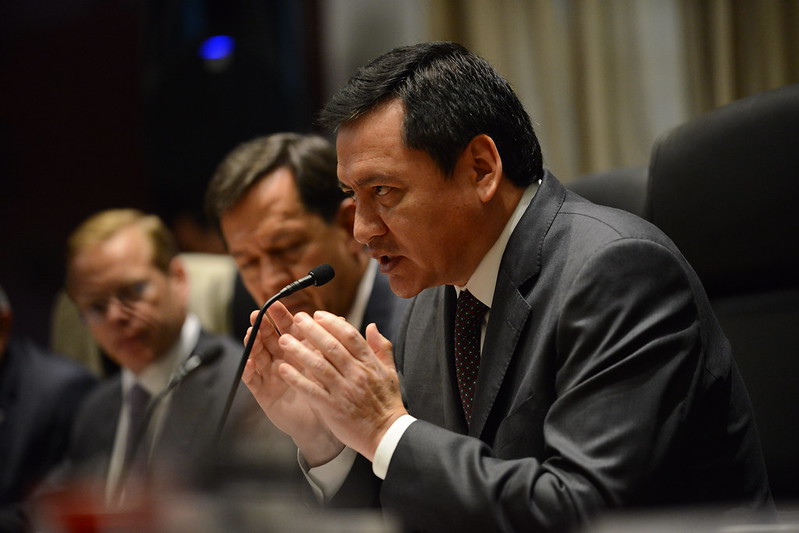
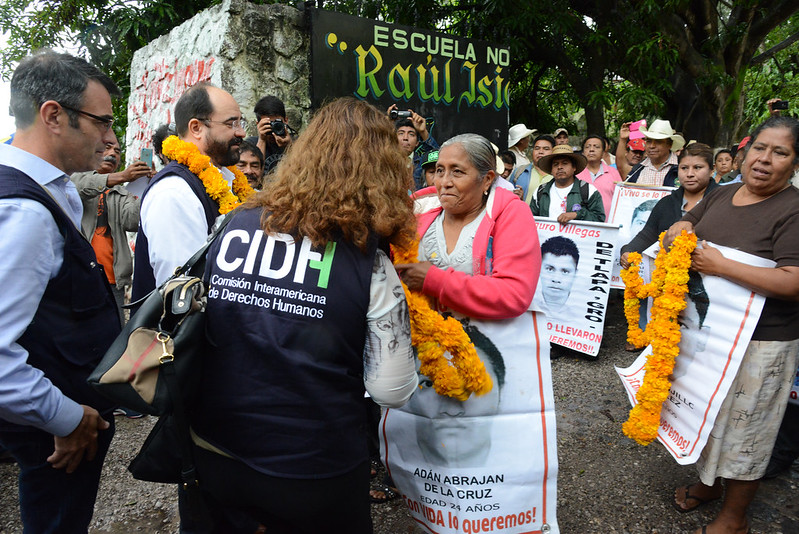

The IACHR carried out an on site visit to Mexico from September 28 to October 2. The Commission has been able to confirm on the ground the serious human rights crisis Mexico is experiencing, which is characterized by a situation of extreme insecurity and violence; serious human rights violations, especially forced disappearances, extrajudicial executions, and torture; critical levels of impunity; and inadequate and insufficient attention to victims and their families. The effect of the violence and violations of fundamental rights is especially serious and disproportionate for people living in poverty, migrants, asylum seekers, refugees, internally displaced persons, women, children, adolescents, human rights defenders, journalists, indigenous peoples, and gays, lesbians, bisexuals, and trans persons (LGBT), among others. Violence against families of victims, human rights defenders and journalists is carried out with the aim of silencing complaints and calls for truth and justice, and perpetuating impunity for gross human rights violations. Violence and intimidation seeks to silence the voices that Mexico most needs.
The Inter-American Commission confirmed the profound gap between the legislative and judicial framework, and the daily reality that millions of people in the country experience. Again and again, throughout the country, the Commission heard from victims that the process of justice is a "simulation." Consequently, at the conclusion of its visit, the Commission expressed it is necessary to address the structural causes of the lack of access to justice in Mexico, such as the infiltration by groups of organized crime in many police bodies, especially at the municipal level, as well as in agencies of the justice system. It is fundamental to strengthen and consolidate judicial independence in Mexico.
2014
Colombia, September 29 to October 3, 2014
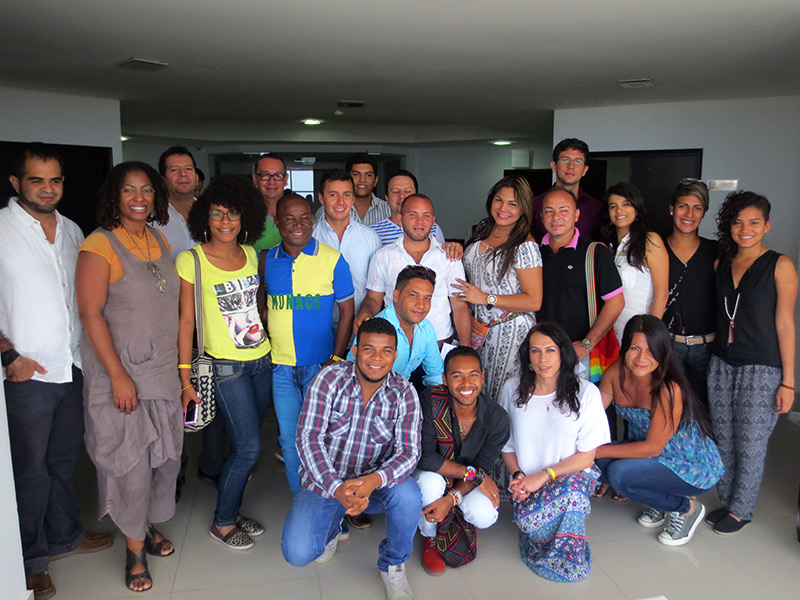

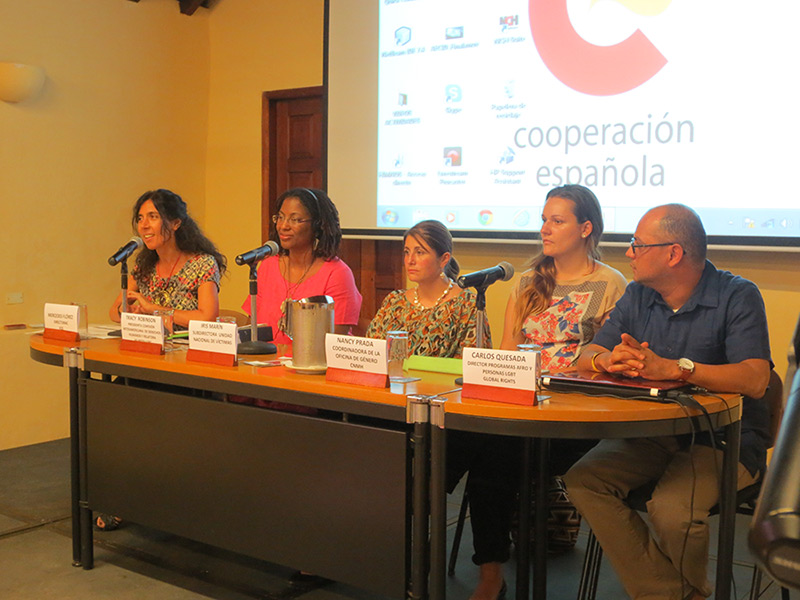
The Chair of the Inter-American Commission on Human Rights (IACHR), Tracy Robinson, visited Colombia, from September 29 to October 3, 2014. In her capacity as Rapporteur for the Rights of Women and Rapporteur for the Rights of Lesbian, Gay, Bisexual, Trans and Intersex people (LGBTI), Commissioner Tracy Robinson visited the cities of Cali, Bogota and Cartagena. The first objective of the visit was to collect information about the challenges that women face in accessing information on violence and discrimination that will be included in a regional report being prepared by the Rapporteur on the Rights of Women. The second objective consisted on meeting with LGBTI human rights defenders and organizations, in order to seek information on the situation of human rights of these persons in Colombia. This information will be included in the regional report being prepared by the LGBTI Rapporteurship on the situation of violence against LGBTI persons.
The IACHR delegation formally requested meetings with state authorities in Cali, Bogota and Cartagena. However, the delegation was informed that, due to the transition in state authorities dealing with human rights, these meetings would not be possible. The delegation met with more than 50 women and civil society organizations. The IACHR delegation organized two events in Cali, one academic and one public, to disseminate the legal standards of the inter-American system on the rights of women and the issue of access to information.
2013
Canada, August 6 - 9, 2013

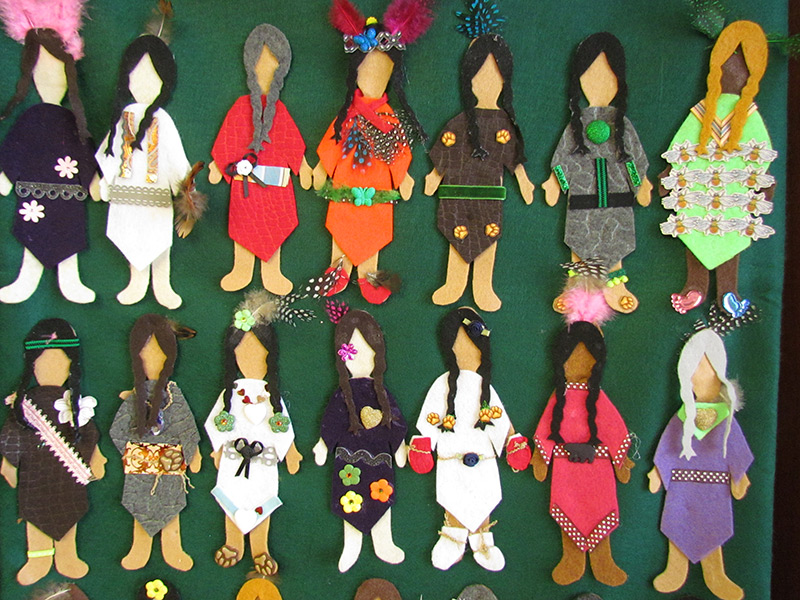

The Inter-American Commission on Human Rights carried out a working visit to Canada on August 6-9, 2013, to look into the disappearances and murders of indigenous women in British Columbia. The delegation was made up of Commissioner Dinah Shelton, Rapporteur on the Rights of Indigenous Peoples; Commissioner Tracy Robinson, First Vice Chair of the IACHR and Rapporteur on the Rights of Women; and staff of the Executive Secretariat. The visit began in Ottawa and continued in British Columbia, specifically in Vancouver and Prince George. The delegation received information and testimony from relatives of indigenous girls and women who have disappeared or have been killed. In Ottawa, the delegation met with federal government authorities and civil society organizations and representatives, including tribal organizations and leaders. In British Columbia, the delegation met with provincial government authorities, representatives of the legislative branch, and civil society organizations and representatives, including tribal organizations, authorities, and leaders.
Honduras, May 14 - 18, 2013
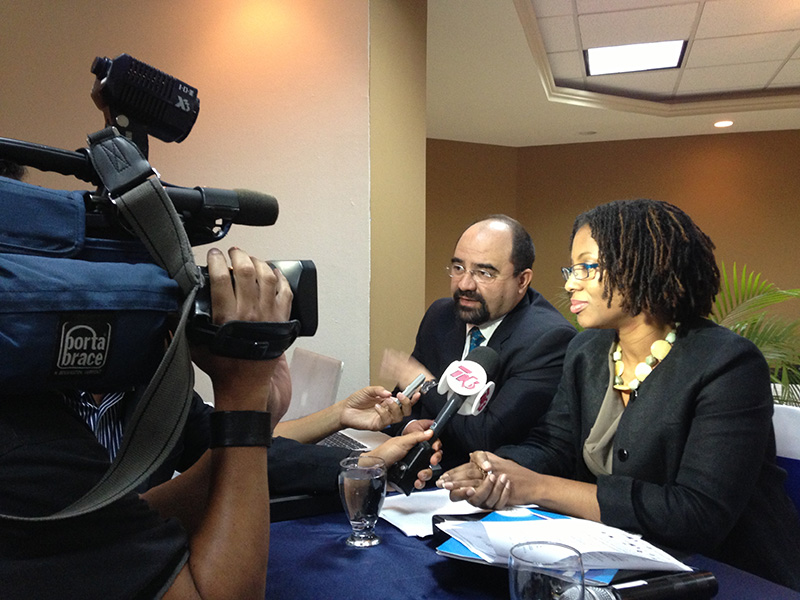
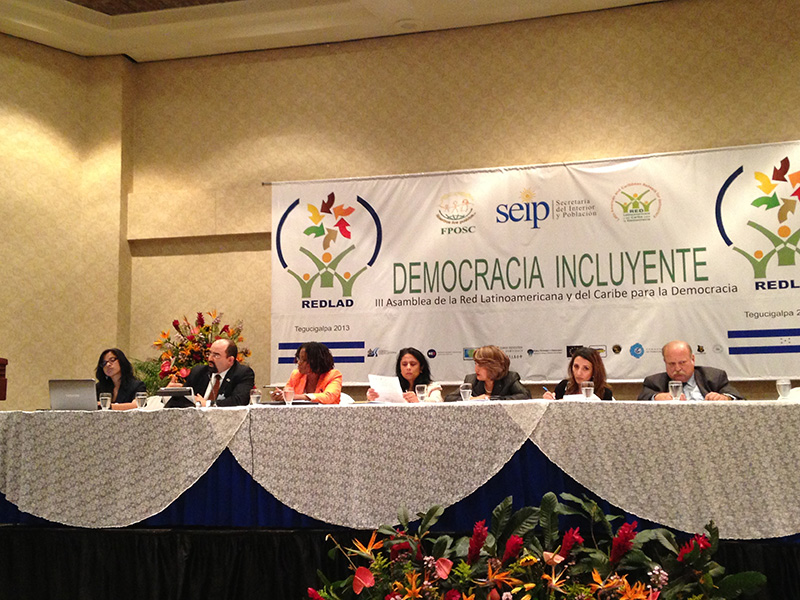
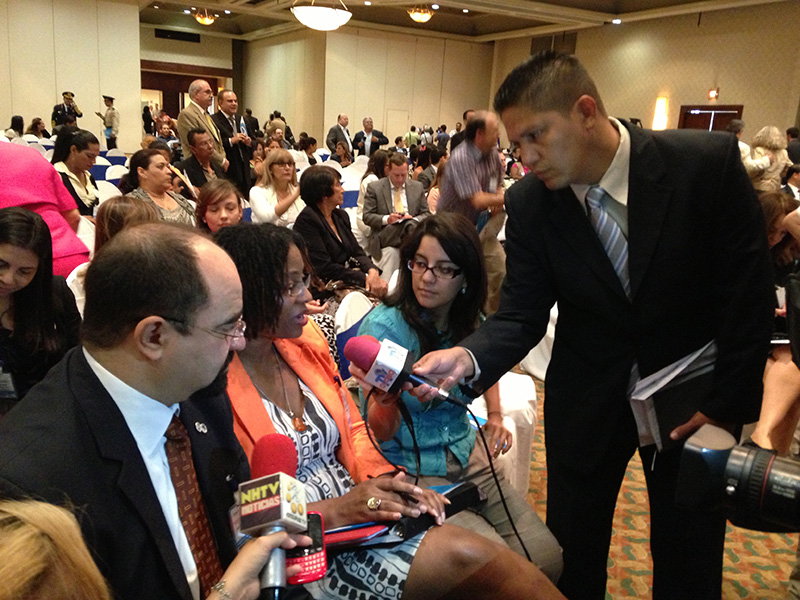
From May 14 to 18, 2013, the Rapporteur for Honduras, Commissioner Tracy Robinson, and the Commission's Executive Secretary, Emilio Álvarez Icaza Longoria, visited Honduras in the framework of their participation as speakers at the Third Assembly of the Latin American and Caribbean Network for Democracy (LAC Network). The delegation met with state authorities, representatives of civil society organizations, and representatives of international and regional organizations. In addition, they met with indigenous women leaders from various parts of the country. They also organized two meetings on friendly settlement cases and three meetings on precautionary measure monitoring.
Suriname, January 23 - 25, 2013
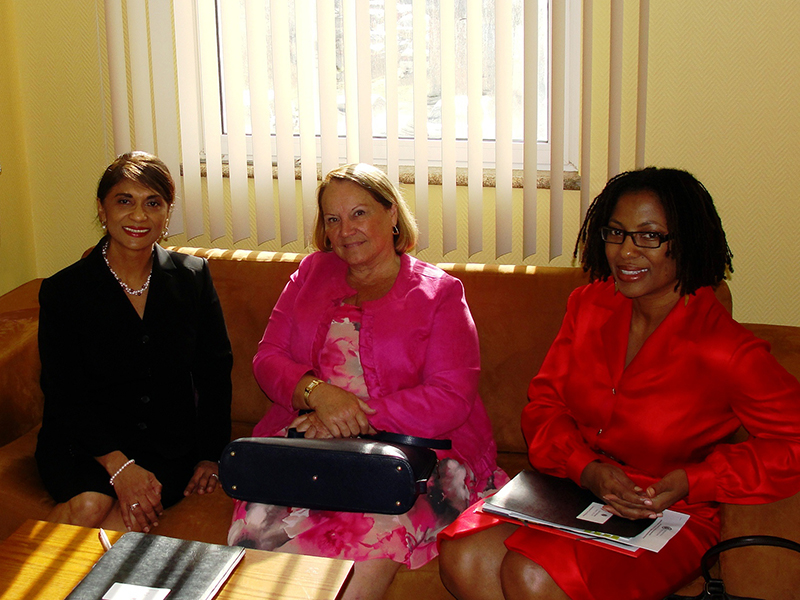
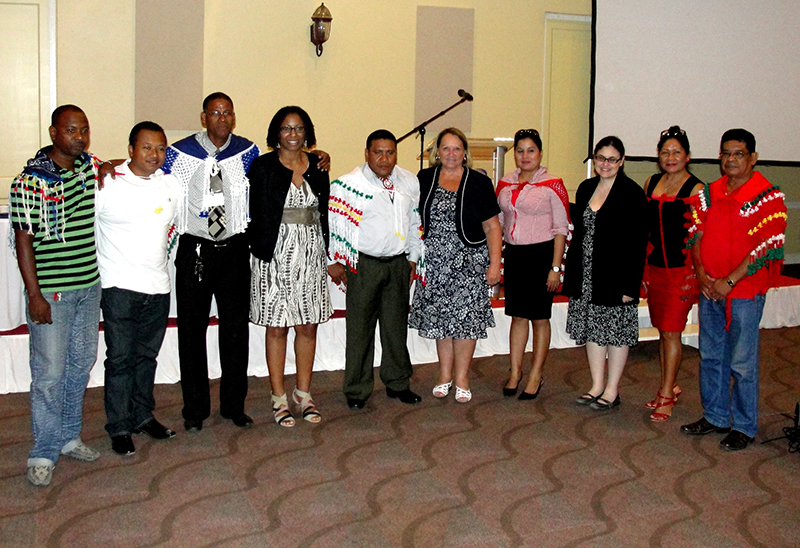
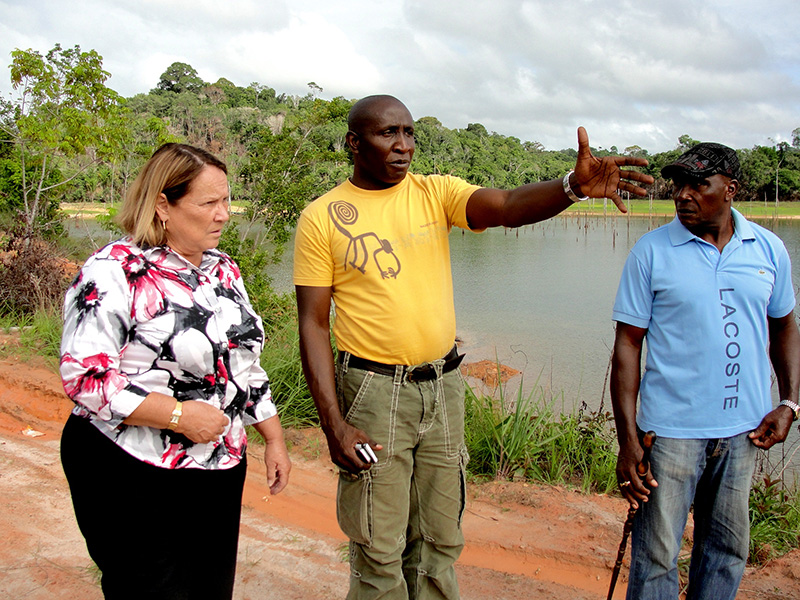
The Inter-American Commission on Human Rights undertook a working visit to the Republic of Suriname between January 23-25, 2013 in order to examine the situation of the rights of women and indigenous peoples. The delegation was composed of Commissioner Dinah Shelton, Rapporteur on the Rights of Indigenous Peoples; Commissioner Tracy Robinson, First Vice-President and Rapporteur on the Rights of Women; and staff from the Executive Secretariat.
During the visit, the delegation held meetings with the highest authorities of the Suriname state, and representatives from civil society organizations dedicated to the defense of the rights of indigenous peoples, women and LGBTI persons in the country. Several members of the delegation also traveled to the district of Brokopondo and the village of Brownsweg to visit a Maroon village composed of 8,000 persons. The delegation offered in a workshop attended by approximately fifty government officials on the Inter-American System of Human Rights and an academic event at the Anton de Kom
University, with the participation of law professors and students.
2011
Colombia, May 2 - 4, 2011
The Office of the Rapporteur on the Rights of Women carried out a visit to Colombia May 2-4, 2011, to promote compliance with precautionary measures the IACHR has granted to women's organizations. The visit by Rapporteur Luz Patricia Mejía was made at the request of the organizations representing women who are beneficiaries of the Commission's protection measures, in view of information the Commission has been receiving about threats, acts of harassment, and attacks reportedly being suffered by women who work to defend human rights of women in Colombia. The delegation met with high-level State authorities and representatives of civil society organizations in the cities of Bogotá and Cartagena.
2010
El Salvador, November 17 - 19, 2010
From November 17 to 19, 2010, the Rapporteurship made a working visit to El Salvador to gather information at the national level on the main progress made and challenges faced by women in exercising their economic, social, and cultural rights without discrimination. During this visit, on November 18, 2010, the Rapporteurship presented the report Access to Maternal Health Services from a Human Rights Perspective. In addition, on November 19, the Rapporteur’s office organized two workshops to provide officials from all levels of government and civil society organizations with training on the standards and mechanisms of the inter-American human rights system as they apply to discrimination and women’s economic, social, and cultural rights.
Argentina, February 15 - 17, 2010
Commissioner Luz Patricia Mejía Guerrero visited Argentina from February 15 to 17, 2010, in her capacity as Rapporteur for Argentina. The purpose of the visit was to promote compliance with friendly settlement agreements and the recommendations of the IACHR, for which the delegation held meetings with senior authorities of the National and Provincial Public Powers, as well as with representatives of civil society organizations.
Argentina, February 15 - 17, 2010
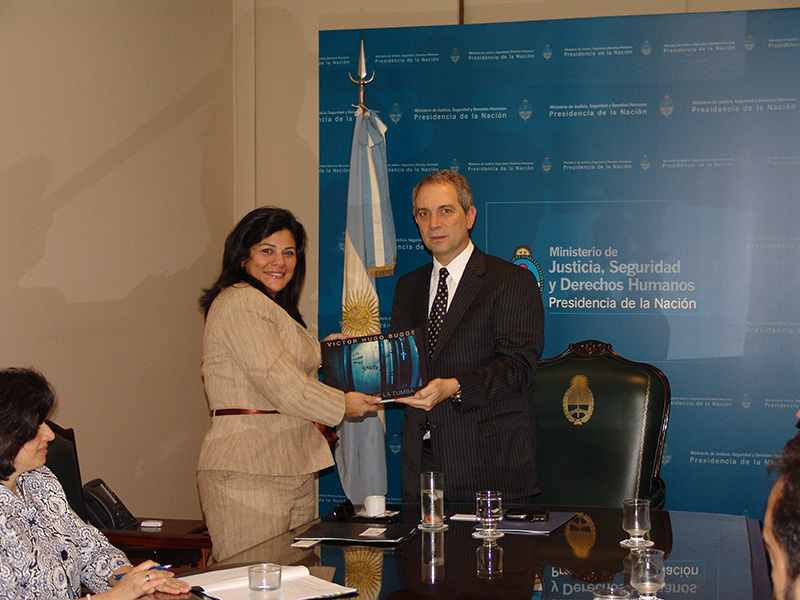

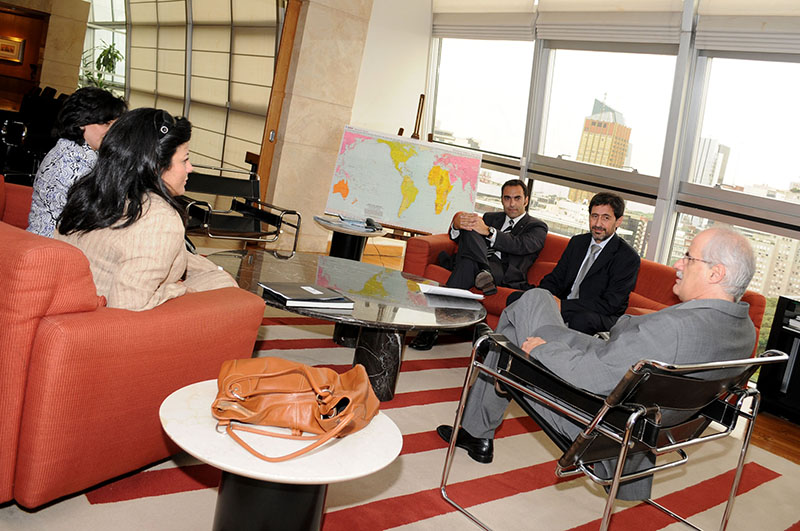
Commissioner Luz Patricia Mejía carried out a working visit to Argentina February 15-17, 2010, in her capacity of Rapporteur ono Argentina. The object of the visit was to promote compliance with IACHR friendly settlement agreements and recommendations, and to this end Rapporteur Mejía Guerrero met with high-level national and provincial authorities, as well as with representatives of civil society organizations.
2009
Bolivia, June 22 - 26, 2009

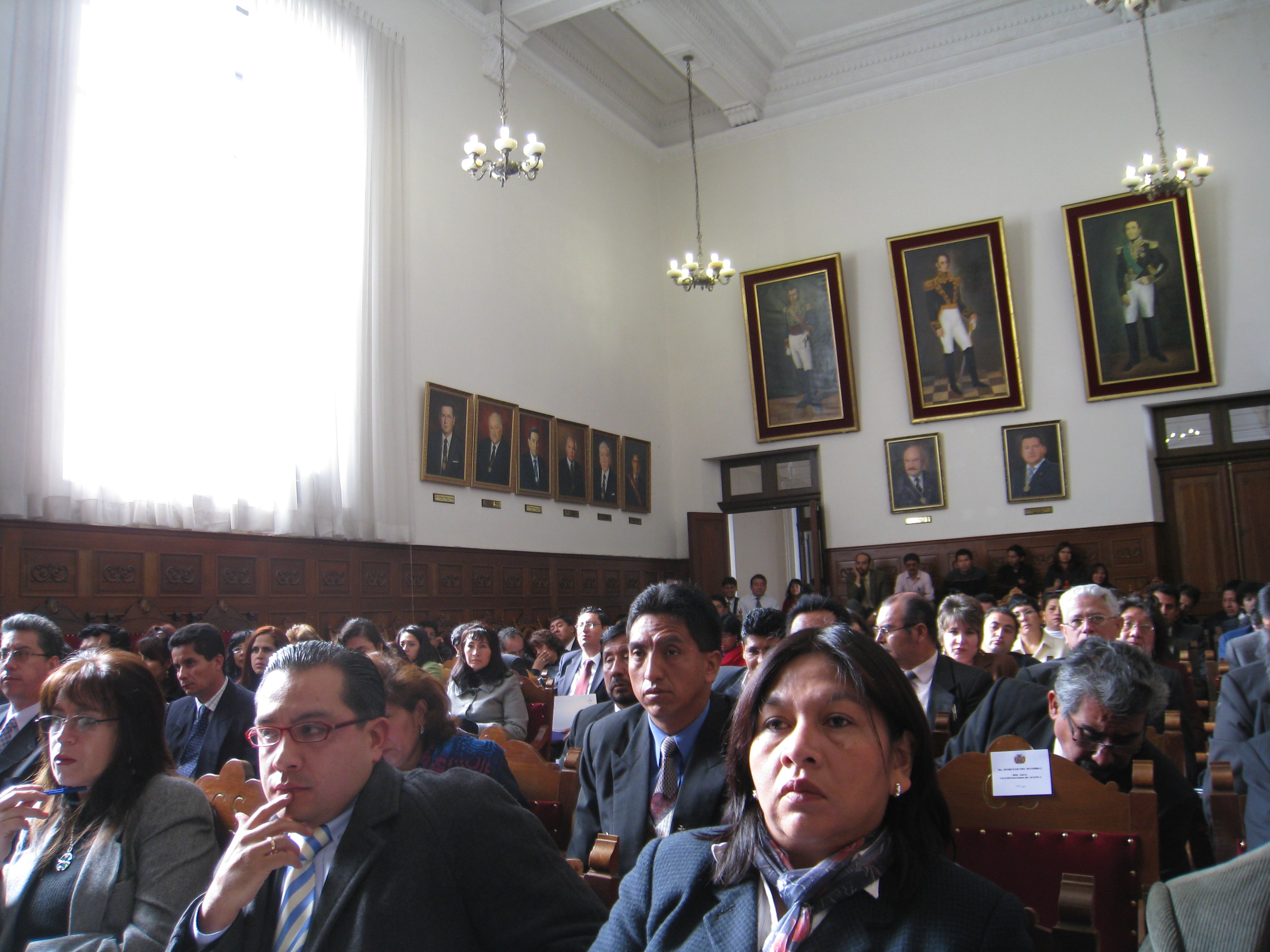
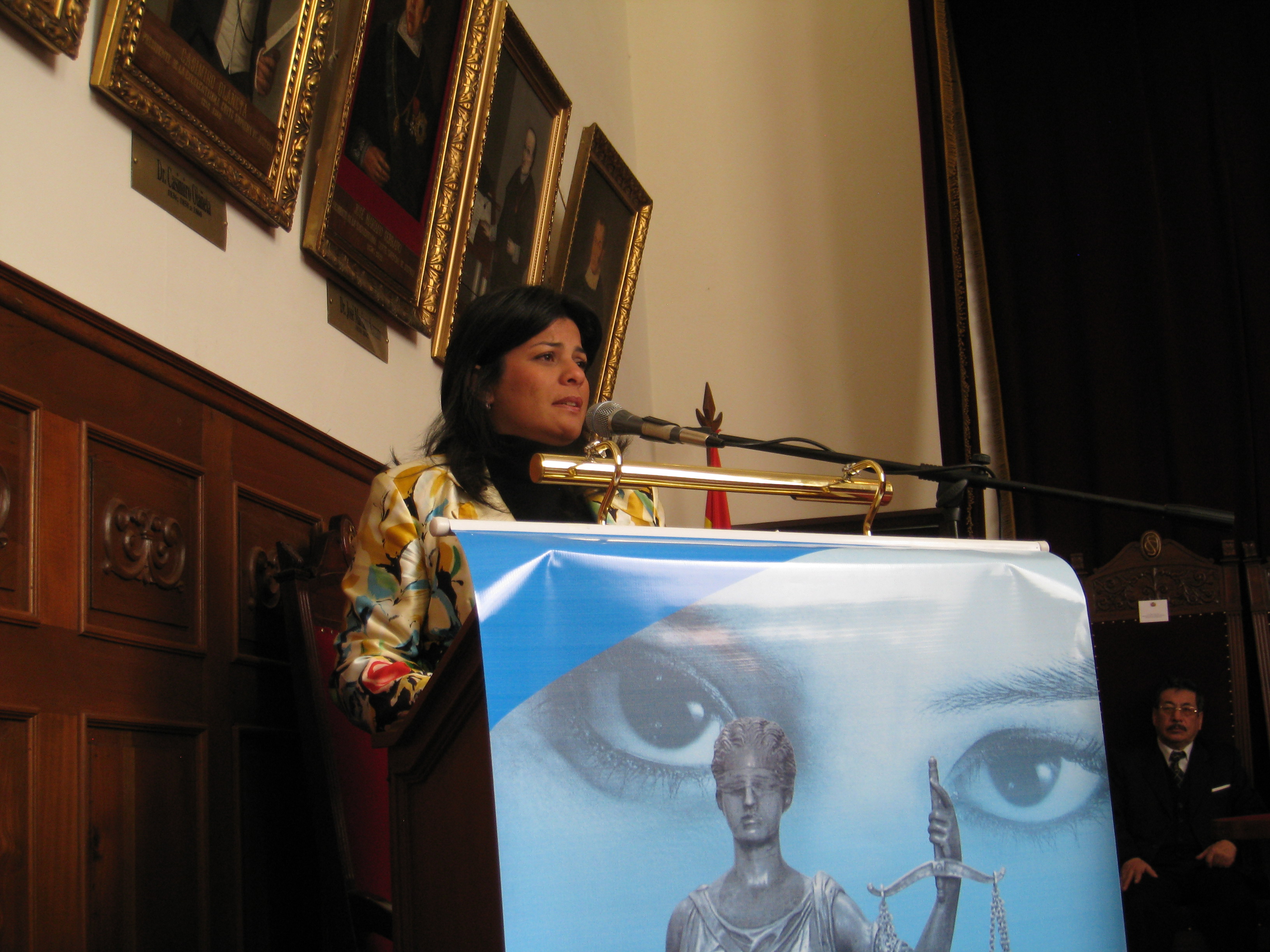
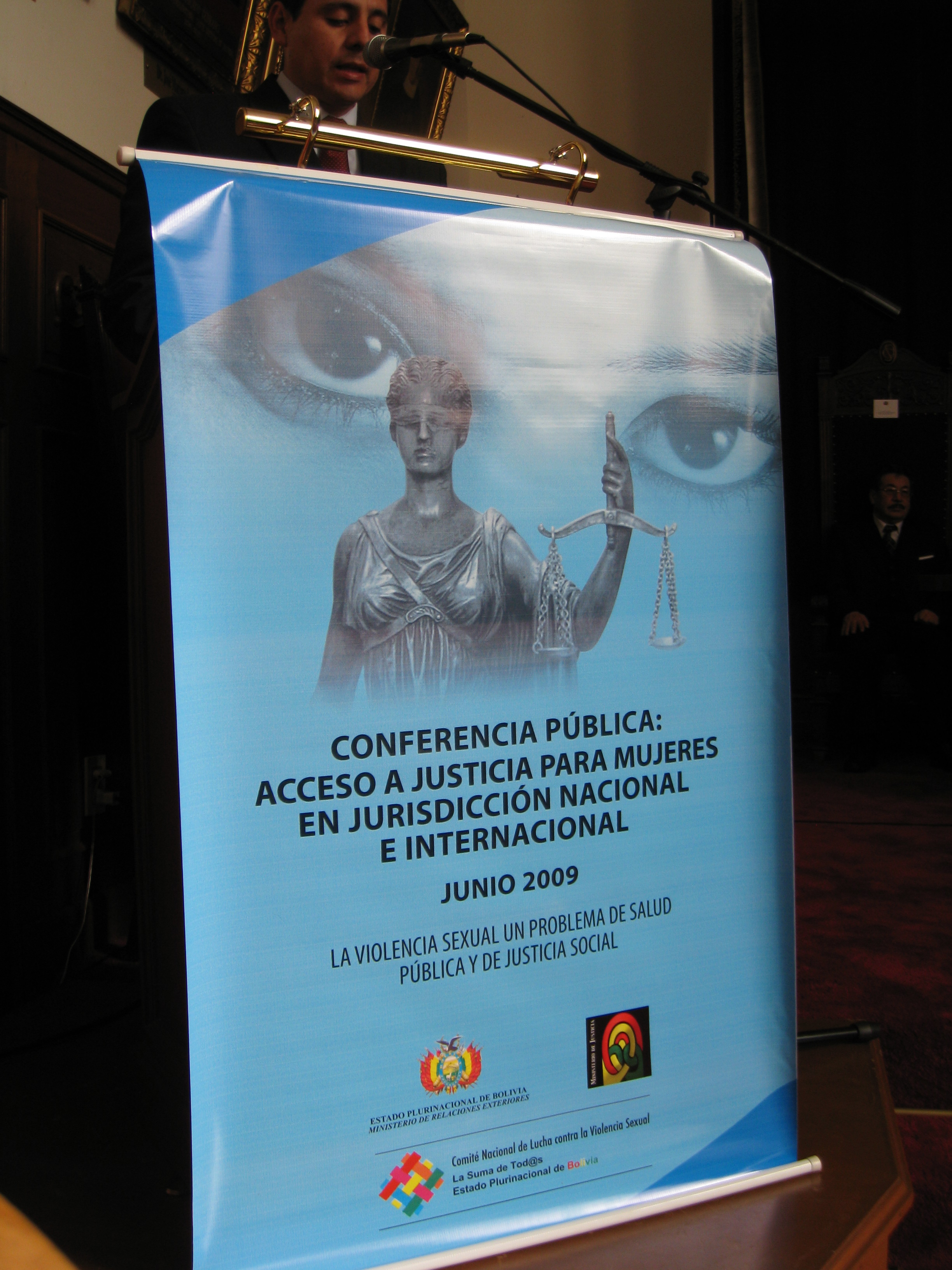
Commissioner Luz Patricia Mejía conducted a working visit to Bolivia on June 22-26 at the invitation of the government, in her capacity as Rapporteur on the Rights of Women. She was accompanied by attorneys Rosa Celorio and Fiorella Melzi of the IACHR Executive Secretariat. The primary objective of the visit was to collaborate in the fulfillment of one of the agreements included in the friendly settlement of the case of MZ v. Bolivia, signed on March 11, 2008. During the visit the Rapporteurship on the Rights of Women also gathered information on the economic, social, and cultural rights of women in the country, as part of a hemispheric report the Rapporteurship is preparing on the subject.
2007
Chile, September 10 - 13, 2007
The Rapporteurship conducted a working visit to Chile from September 10 to 13, 2007, in order to observe and gather information on the situation regarding the rights of women in that country, particularly their right to live free of discrimination.
2006
Bolivia, November 12 - 17, 2006
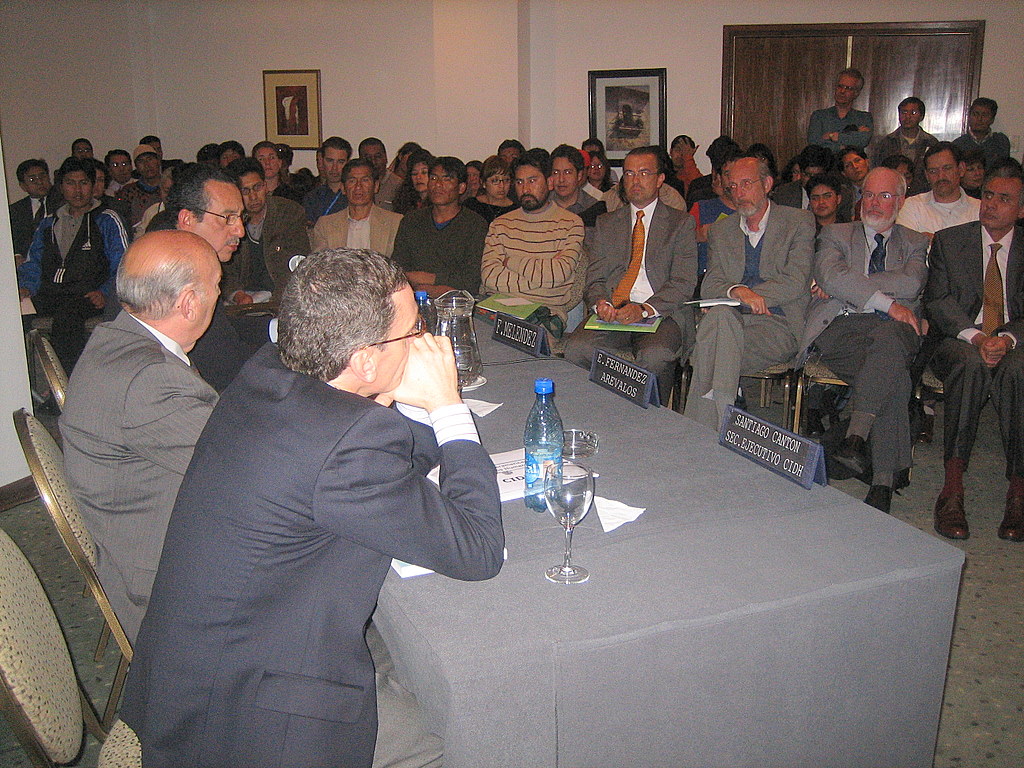

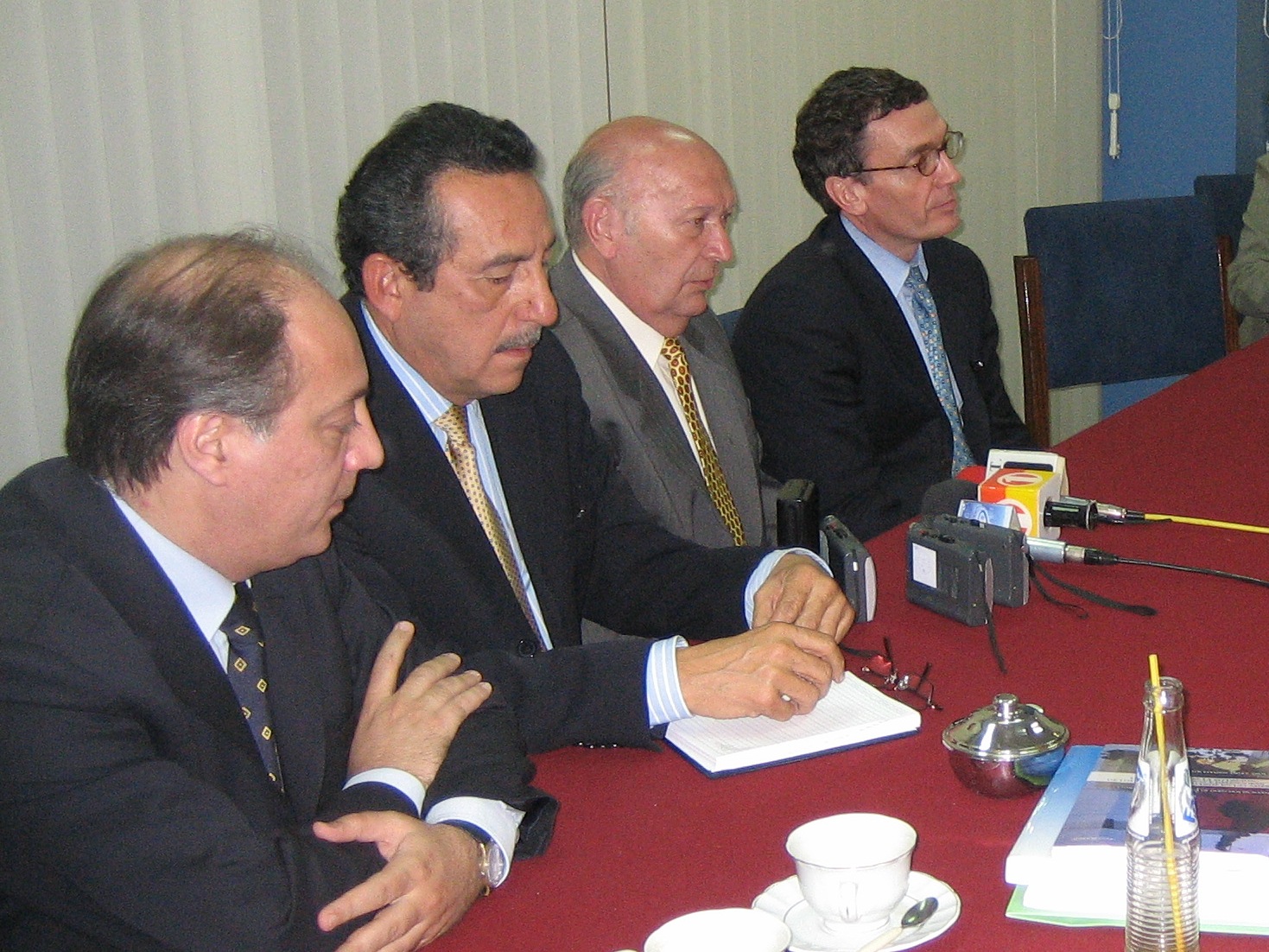
Following an invitation by the government, the Commission carried out a visit to the Republic of Bolivia November 12-17, 2006, in order to observe the general human rights situation in that country. The Commission delegation was made up of its Chair, Evelio Fernández Arévalos; its Second Vice-Chair and Rapporteur for Bolivia, Florentín Meléndez; Commissioner Víctor Abramovich; the Executive Secretary, Santiago A. Canton; human rights specialists Débora Benchoam, Silvia Serrano, and Leonardo Hidaka; and document technician Gloria Hansen.
During its stay in Bolivia, the Commission met with government authorities and held meetings with various segments of civil society. These included representatives of organizations promoting the rights of indigenous peoples, the rights of women, the rights of children, and the rights of persons deprived of liberty; representatives of campesino organizations and organizations devoted to strengthening the administration of justice; journalists; and trade union members.
At the end of its visit, the IACHR issued Press Release 46/06 . On June 28, 2007, the IACHR approved the report Access to Justice and Social Inclusion: The Road towards Strengthening Democracy in Bolivia , which was published on August 7, 2007 . In its 2009 Annual Report, the IACHR published a Follow-Up Report in which it analyzes the State’s compliance with the report’s recommendations.
Haiti, January 2, 2006 to November 30, 2007
The Rapporteurship on the Rights of Women participated in visits made by the IACHR to Haiti in 2006 and 2007
- IACHR Encouraged by Efforts to Improve Human Rights Situation in Haiti
- IACHR Releases Report on Visit to Haiti
- Observations of the IACHR on its Visit to Haiti in April 2007 (published in 2008)
- IACHR Releases Report on the Situation of Women in Haiti
- Report: The Right of Women in Haiti to be Free from Violence and Discrimination - 2009
2005
Colombia, June 25, 2005
In June 2005, The Rapporteurship conducted a visit to Colombia to evaluate the impact of the armed conflict on Colombian women and girls and to collect information about the legal, public policies and institutional measures adopted by the State to protect the rights of women.
2002
Mexico, February 11 - 12, 2002
In 2002, the Office of the Rapporteur on the Rights of Women conducted a Visit to Ciudad Juarez, Mexico, to analyze the status of women’s rights.




